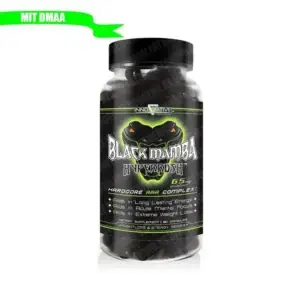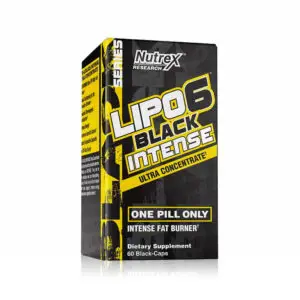Ginseng, often referred to as a miracle herb, has fascinated people for thousands of years. This versatile plant is valued in traditional medicine and is attracting increasing attention in modern health science. Its healing properties could be a valuable addition to our approach to health.
There are different types of ginseng, each with their own unique effects and uses. From red to white to American ginseng, the variety of this root offers different benefits that can support both physical and mental health. These different varieties influence healing in different ways and are therefore suitable for diverse application scenarios.
What is ginseng?
Ginseng is a fascinating medicinal plant from the Panax genus, which is native to the forests of Asia and North America. Two species are particularly well known: Asian ginseng(Panax ginseng) and American ginseng(Panax quinquefolius), the latter being valued for its milder properties.
For centuries, the root of the ginseng plant has been used in traditional Chinese medicine to promote vitality and health. The term "Panax" is derived from the Greek word "panacea", which means "panacea". This underlines the diverse use of ginseng for various health applications.
An essential component of ginseng are the ginsenosides, special saponins, of which over 30 types have been identified. These ginsenosides contribute to the positive health effects of ginseng and make it a popular element in naturopathy.
Main types of ginseng:
| Ginseng type |
Region of origin |
Special features |
| Asian ginseng |
Asia |
Stronger, energizing |
| American ginseng |
North America |
Mild, calming effect |
Ginseng is consumed in many forms, for example as a tea, in capsule form or as an extract, and is known for its ability to strengthen the immune system and promote mental performance.
The different types of ginseng
Ginseng is one of the world's most important medicinal plants and is obtained from various species. The main species are American ginseng and Asian ginseng, with American ginseng being considered milder. In addition to the true Panax ginseng, there is also Panax notoginseng and Panax japonicus, which are considered to be inferior in quality. It is important to understand the properties and processing methods of the different types of ginseng in order to select the right product for individual needs. Siberian ginseng, although often referred to as such, is botanically not true ginseng as it does not contain ginsenosides.
Red ginseng
Red ginseng is extracted from the roots of Panax ginseng C. A. Meyer. After harvesting, the roots are gently steamed. This process not only serves to preserve them, but also causes the conversion of certain ginsenosides, which can increase their effectiveness. Red ginseng is known for its role as a tonic to strengthen the body and combat fatigue. Red ginseng also contains valuable vitamins and minerals. Optimal cultivation requires a period of 5 to 6 years, while the soil must rest for up to 10 years after harvesting to regenerate the natural resources.
White ginseng
White ginseng is produced by peeling, bleaching and drying the root after harvesting. These steps give it its characteristic color. There are also variants in which white ginseng is not peeled, which can preserve more ingredients and potentially offer health benefits. Despite different processing, there are no significant differences in effect compared to red ginseng. In Europe, white ginseng is the best known form, while red ginseng is mainly preferred in Asia.
American ginseng
American ginseng (Panax quinquefolius) is known for its mild effect and is often described as calming. It is available in various forms, including fresh or dried root, extract, capsules and tea. The panaxosides it contains are responsible for its health-promoting effects. It has long been known that ginseng activates the body's self-healing powers in traditional Chinese medicine. Studies have shown that American ginseng can help cancer patients in particular to reduce their fatigue and increase their general well-being.
Medicinal effects of ginseng
Ginseng is known for its versatile medicinal effects, which are valued in various cultures and therapeutic approaches. The active ingredients, especially the ginsenosides, are known for their modeling effects on the immune system and the central nervous system. These properties make ginseng a sought-after remedy in traditional and modern medicine.
Stress reduction
Ginseng can make a significant contribution to stress reduction. Its adaptogenic properties help the body to cope better with both mental and physical stress. Studies suggest that ginseng can strengthen the body's own defenses against stress, which benefits overall health. These stress-relieving properties also help to improve mental performance. Animal studies have shown that ginseng can reduce fatigue and stress and improve learning ability and memory.
Lowering the blood sugar level
Another impressive effect of ginseng is its ability to regulate blood sugar levels. In the treatment of diabetes, especially type 1 diabetes, ginseng is a supportive therapeutic agent. Studies have shown that ginseng not only lowers blood sugar, but also lifts the mood and increases vital energy. It is also thought to improve insulin sensitivity, which also helps to lower blood sugar. However, it is advisable to consult a doctor when taking ginseng together with blood sugar-lowering medication in order to avoid possible interactions.
Strengthening the immune system
Ginseng also plays an important role in strengthening the immune system. By promoting the production of immune cells, ginseng can help to strengthen the body's defenses. Red ginseng, which is produced using a special steaming process, is particularly valued for these immune-boosting properties. Although some studies have shown positive effects on the immune system, there are methodological differences that make it difficult to draw definitive conclusions about its effectiveness on respiratory infections.
Improvement in mental performance
Ginseng is often associated with improving mental performance, especially as there is evidence that ginseng can enhance learning and memory in animals. Although some clinical studies have found positive effects of standardized ginseng extracts on tiredness and fatigue, the results are not clear enough to draw solid conclusions for healthy people or people with dementia. Methodological differences in the existing studies currently prevent robust conclusions about the cognitive benefits of ginseng.
Overall, ginseng offers interesting potential for promoting a healthy lifestyle, although more research is needed to fully confirm its effects.
Forms of application of ginseng
Ginseng is a versatile plant that is available in various formats to suit individual needs. The forms on offer include fresh and dried roots, extracts, solutions, capsules, tablets, cosmetic products and even lemonade. This variety makes it possible to utilize the benefits of ginseng in different ways.
A popular form of intake is ginseng capsules, which are often combined with vitamins to facilitate absorption. These capsules are particularly practical for quick and uncomplicated use. There is also ginseng powder, which is well suited as a dietary supplement and can be easily integrated into everyday life. Centuries of use in traditional Chinese medicine underline the many possible applications of ginseng in various dosage forms.
Capsules
Ginseng capsules are a widely used and popular form of dietary supplement that is particularly appealing to people with an active lifestyle. The highly concentrated ginseng extract in the capsules comes from the Panax ginseng plant, which is native to the Asian mountains. Each daily dose contains 280 mg of the active ginsenoids, which are valued for their potentially health-promoting properties.
Taking these capsules supports a balanced diet, especially in times of increased physical exertion.
Tea
Ginseng tea offers a natural way of integrating the plant's active ingredients into everyday life. To prepare the tea, it is recommended to pour about 150 milliliters of boiling water over two grams of dried and finely chopped root and strain after five to ten minutes of infusion.
Ginseng is not directly effective against diseases, but supports the body's own self-healing powers. Because of these properties, ginseng tea is often used to relieve colds and improve general well-being. This form of preparation makes it easy to benefit from the positive effects of ginseng on a regular basis.
Ingredients of ginseng
Ginseng is rich in unique ingredients that can help to promote health. One outstanding ingredient is the saponins known as ginsenosides. Over 30 different types of these ginsenosides have been identified that are not found in any other plant.
In addition to ginsenosides, ginseng root also contains valuable polysaccharides and essential oils. These help to strengthen the immune system and support a healthy lifestyle. Red ginseng, a special form, is often consumed in powder form. It is recommended to take 1 to 2 g of ginseng root powder daily to reap the health benefits.
Ginseng root is also rich in vitamins and minerals. These include vitamin C, B vitamins and various minerals and trace elements that are important for a balanced diet.
Ginseng tablets, the quality of which is ensured by compliance with the guidelines of the European Pharmacopoeia, offer a high concentration of ginsenosides. This makes them effective and easy to take to support mental performance and general health.
Potential side effects of ginseng
Ginseng is often valued for its positive effects on the immune system and mental performance. However, prolonged use can also lead to side effects. These include allergic skin reactions, insomnia and loss of appetite.
Common side effects:
- Nervousness
- Excitability
- Concentration problems
These side effects are usually mild and disappear after a few days.
Less frequent side effects:
- Headache
- Diarrhea
- Dizziness
- Vaginal bleeding
- Palpitations
- Changes in blood pressure

























